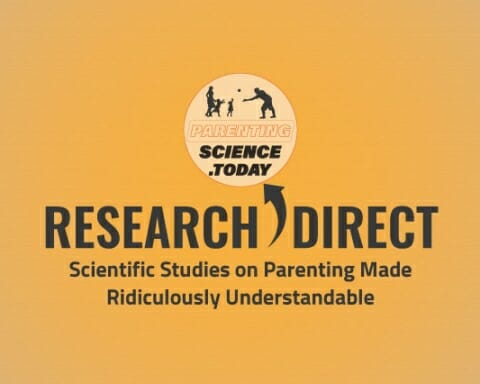Intellectual, behavioral, and communicative development is of vital importance in a child. Future achievements and success in adulthood depend to a large extent on the ability to function normally during childhood. Therefore, any problem that affects these qualities can permanently harm the infant.
Although there are effective treatments for several underlying causes of language delay in young children, it is not clear whether the systematic detection of language delay at an early age is effective or not.
Some studies have evaluated the characteristics of specific screening instruments used to detect language delays in preschool children. Only one study to assess the accuracy of a structured language screening test was set up as a randomized controlled trial. However, none of these studies evaluated the effects of screening on language performance at a later age.
The Dutch public health department, through the Erasmus Medical Center in Rotterdam, conducted a study entitled “A Cluster-Randomized Trial of Screening for Language Delay in Toddlers: Effects on School Performance and Language Development at Age 8” in order to prove their hypothesis that early screening would result in fewer children who needed special attention in school, who had to repeat a year in regular school, and who scored in the lowest percentile of several standardized language tests.
How Was the Study Conducted?
The researchers asked a group of child health-care physicians to identify low and high socioeconomic neighborhoods within their region. Once the socioeconomic strata were identified, each physician was then allocated a number and randomly classified into intervention and control groups.
Physicians in the control group performed the usual monitoring system, which was based on the physicians’ observations; they also questioned the parents in a limited manner without clear referral criteria. The physicians in the intervention group were trained to use the specific screening instrument.
The language screening Instrument consisted of questions about the language production, language reception, and interaction of children between twelve and twenty-nine months of age. With this instrument, the child health-care physician from the intervention group interviewed parents, who routinely visited the child health center with their child. The complete evaluation procedure included a selection interview at fifteen, eighteen, and twenty-four months.
If a child had a low final score in the screening, they were referred to a general practitioner for additional assessment at a speech and hearing center. Once the child’s language acquisition deficiencies were identified, the underlying causes were investigated.
At the end of the selection period, 55 doctors were recruited, along with their 11,440 patients, who were evaluated to determine which children had a language delay or a suspected language delay.
The primary outcome measures were school performance and linguistic ability at age eight. School performance encompassed the child’s school career, which included the type of school the child attended, how the child functioned at school, and whether the child had repeated a grade or not.
How Did It Go? Any Positive Results?
At age eight, 2.7 percent in the intervention group and 3.7 percent in the control group attended a special school; 6.1 percent versus 4.9 percent had repeated a grade; 8.8 percent versus 9.7 percent had deficient oral language performance; 4.7 percent versus 4.7 percent had deficient reading performance, and 2.8 percent versus 4.2 percent had deficient spelling performance.
Researchers demonstrated that the early detection of language delays in preschoolers at health-care centers using a specific screening instrument, followed by early treatment, can reduce the percentage of children who attend a special school at age eight by 30 percent.
They also showed that an early language screening program with a multidisciplinary diagnostic procedure protocol may reduce linguistic and behavioral problems. They recommend implementing the intervention nationwide as part of the routine monitoring of children’s general development.
If a child has a suspected linguistic development problem, consult a pediatrician for the most appropriate treatment options.
Reference:
Van Agt, H.M., Van Der Stege, H.A., de Ridder-Sluiter, H., Verhoeven, L.T. and De Koning, H.J., 2007. A cluster-randomized trial of screening for language delay in toddlers: Effects on school performance and language development at age 8. Pediatrics, 120(6), pp.1317-1325. Retrieved from http://pediatrics.aappublications.org












